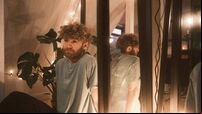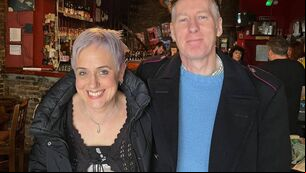Theo Dorgan: 'I never left Cork... I just live elsewhere'

Set in Paris and Cork, Theo Dorgan’s second novel is a fine piece of writing and a fascinating character study of Blackpool-born Joseph, who is forced to go into exile after he shoots and wounds a policeman in his native city.

That incident happened in 1940, and Tomás Óg was sentenced to death. However, he was granted clemency and released after seven years. He later served on the IRA Executive and died in 1994.
, by Theo Dorgan, published by Mercier Press, will be launched on June 17 at Waterstones in Cork at 6.30pm.







 App?
App?


